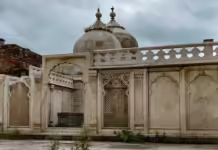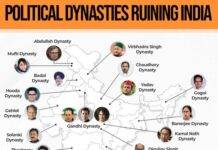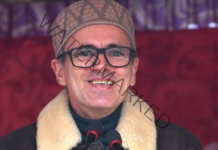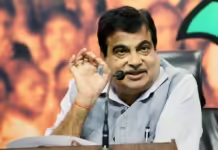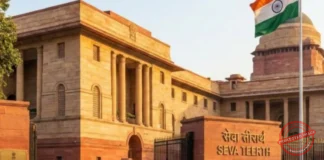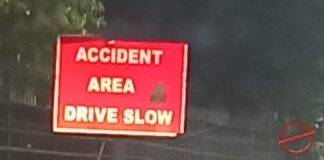
In a fair election, the Bharatiya Janata party (BJP) were nowhere near 240 seats. This what the Leader of Opposition (LoP) Rahul Gandhi said in terms of the recently held polls for the 18th Lok Sabha, results of which were declared on June 4, this year.
Speaking the Georgetown University, School of Foreign Students, the former Congress president said, “I don’t think in a fair election, the BJP were nowhere near 240 seats. No way. They had a huge financial advantage. They had locked our bank accounts for one. The Election Commission was doing what they wanted. The entire campaign was structured, so Mr Modi could do his thing across the country. States they were weak in were designed differently that states they were strong. I don’t view it as a free election at all. I view it as a rather controlled election.”
Double standards in politics
Speaking his mind out on the double standards in politics, Leader of Opposition (LoP) Rahul Gandhi while interacting with students at the University of Texas explained said that “Devta actually means a person whose internal feelings are exactly the same as his external expression, meaning he is a completely transparent being. If a person tells me everything he believes or thinks and expresses it openly, that’s the definition of a Devta.”
Further sharing his thoughts on the true meaning of transparency and its role in politics he further mentions, “What’s interesting about our politics is this: How do you suppress your own ideas?, How do you suppress your own fears, greed, or ambitions and instead focus on observing other people’s fears and ambitions?”
Genesis of 4000 km long ‘Bharat Jodo Yatra’
Amidst students of Indian Diaspora, eagerly waiting to get their chance to interact one-on-one with the ‘Mohabbat Ki Dukan’ figure taking on the political bigwigs, inside as well as outside the parliament with ease, questions of even thinking about the mammoth walk ‘Bharat Jodo Yatra’ never ever undertaken before in the country, made former Congress president Rahul Gandhi say, “The first question you asked is why I walked four thousand kilometers—what created the need for us to do this? The reason is that all avenues of communication in India were shut. Every single one. No matter what we did, everything was blocked. We spoke in Parliament, but it wasn’t televised. We went to the media, but they didn’t pick up what we said. We even presented documents to the legal system, but nothing happened. So, all the avenues were closed, and for a long time, we literally couldn’t understand how to communicate.”
He further said, “then suddenly, we hit upon the idea: if the media isn’t reaching the masses and institutions aren’t connecting us with the people, go directly to them. The best way to do that was to literally walk across the country. And so, that’s what we did.”
Referring to the initial pangs faced, Gandhi said, “In the beginning, I must tell you, I had a knee problem. For the first 3-4 days, I thought, ‘What have I done?’ Because when you wake up in the morning and say, ‘I’ll run 10 kilometers,’ it’s fine. But when you wake up and say, ‘I’ll walk 4,000 kilometers,’ it’s a completely different paradigm.”
Continuing explain his once in a life time experience Rahul Gandhi said, “There were moments like that, where I thought, ‘This is quite a big thing.’ But surprisingly, it wasn’t difficult at all. And it fundamentally changed the way I think about my work. I would say it completely changed how I view politics, how I view our people, how I communicate with them, and how I listen to them. It wasn’t just me—many people were involved in the Yatra. For all of us, the most powerful thing that happened organically, something we didn’t even plan, was the introduction of the idea of love in politics.”
Referring to no place for love and human approach in politics, he said, “This is strange because if you look at political discourse in most countries, you’ll never find the word love. It simply doesn’t exist in that context. You’ll find hatred, anger, unfairness, corruption—all these words—but rarely the word ‘love.’ The Bharat Jodo Yatra actually introduced that idea into the Indian political system, and I’ve been amazed at how well that idea has worked.”
“Within minutes of election result, nobody in India was scared of the BJP, of the Prime Minister”
Leader of the Opposition in the Lok Sabha Rahul Gandhi told the Indian American community in Dallas that he wouldn’t call it a transformation, but a journey. He thinks politics in India changed dramatically in 2014. “We had entered a phase that we hadn’t seen in India before, aggressive, attacking the foundation of our democratic structure. The people of India had understood that the Bharatiya Janata Party (BJP) was attacking the Constitution of India, and the election results showed that people no longer feared the BJP or Prime Minister Narendra Modi.”
“We saw that, immediately, within minutes of the election result, nobody in India was scared of the BJP, of the Prime Minister. These are huge achievements of the people of India,” Gandhi said.
Lashing out at the Rashtriya Swayamsevak Sangh (RSS), he claimed that the Hindutva fountainhead viewed India as “one idea”, while his party viewed it as a “multiplicity of ideas”.
Much like the United States, Rahul Gandhi said that the Congress party believed in allowing everyone their space, and the opportunity to dream and participate, regardless of their caste, language, religion, tradition and history.
Ninety percent India’s participation in governance was lacking
Rahul Gandhi while expressing the need for a caste census to ensure proportionate participation of all in country’s governance said that ninety percent of India is either tribal, lower caste, Dalit or minority and their participation in the governance of the country, in various institutions, and in the media was lacking. “What we propose is a survey to provide a transparent reality of how power is shared in India, similar to a caste census,” he said.
As per the Congress MP, the problem was much broader than that—it’s about the participation of weaker sections and lower castes across the board. “I’ll shock you by saying, if you were to look at the top 200 corporates in India, and you look at their management teams or their CEOs, you wouldn’t find anyone from the lower castes; you’d only find people from the upper castes. The same is true with Indian media—those controlling it are from a very small percentage of India, which controls the entire infrastructure,” he said.
Gandhi further states, “the first step in understanding the problem is to understand the reality. What is the participation in any field? If you look at the Indian government, 70 secretaries essentially determine the direction of the bureaucracy, and I’ve made this point again and again during elections that 90% of India doesn’t have representation among these people.”



